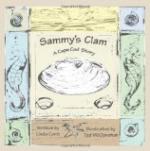“But her majesty thought they was lovely, and set and grinned proud at ’em for hours at a stretch. And the wizards was untied and fed up and given the best house in town to live in. And Cap’n George and Julius and the cook got to feeling so cheerful and happy that they begun to kick Rosy again, just out of habit. And so it went on for three days.
“Then comes the Kanaka interpreter—grinning kind of foolish.
“‘Cappy,’ says he, ‘queen, she likes you. She likes you much lot.’
“‘Well,’ says the skipper, modest, ’she’d ought to. She don’t see a man like me every day. She ain’t the first woman,’ he says.
“‘She like all you gentlemen,’ says the Kanaka. ’She say she want witch husband. One of you got marry her.”
“‘Hey?’ yells all hands, setting up.
“’Yes, sir. She no care which one, but one white man must marry her to-morrow. Else we all go chop plenty quick.’
“‘Chop’ is Kanaka English for ‘eat.’ There wa’n’t no need for the boy to explain.
“Then there was times. They come pretty nigh to a fight, because Teunis and Jule argued that the skipper, being such a ladies’ man, was the natural-born choice. Just as things was the warmest; Cap’n George had an idea.
“‘Rosy!’ says he.
“‘Hey?’ says the others. Then, ’Rosy? Why, of course, Rosy’s the man.’
“But Rosy wa’n’t agreeable. Julius said he never see such a stubborn mule in his life. They tried every reasonable way they could to convince him, pounding him on the head and the like of that, but ’twas no go.
“‘I got a wife already,’ he says, whimpering. ’And, besides, cap’n, there wouldn’t be such a contrast in looks between you and her as there would with me.’
“He meant so far as size went, but George took it the other way, and there was more trouble. Finally Julius come to the rescue.
“‘I tell you,’ says he. ‘We’ll be square and draw straws!’
“‘W’at?’ hollers George. ‘Well, I guess not!’
“‘And I’ll hold the straws,’ says Jule, winking on the side.
“So they drew straws, and, strange as it may seem, Rosy got stuck. He cried all night, and though the others tried to comfort him, telling him what a lucky man he was to marry a queen, he wouldn’t cheer up a mite.
“And next day the wedding took place in the temple in front of a wood idol with three rows of teeth, and as ugly almost as the bride, which was saying a good deal. And when ’twas over, the three shipmates come and congratulated the groom, wishing him luck and a happy honeymoon and such. Oh, they had a bully time, and they was still laughing over it that night after supper, when down comes a file of big darkies with spears, the Kanaka interpreter leading ’em.
“‘Cappy,’ says he. ’The king say you no stay in this house no more. He say too good for you. Say, bimeby, when the place been clean up, maybe he use it himself. You got to go.’




